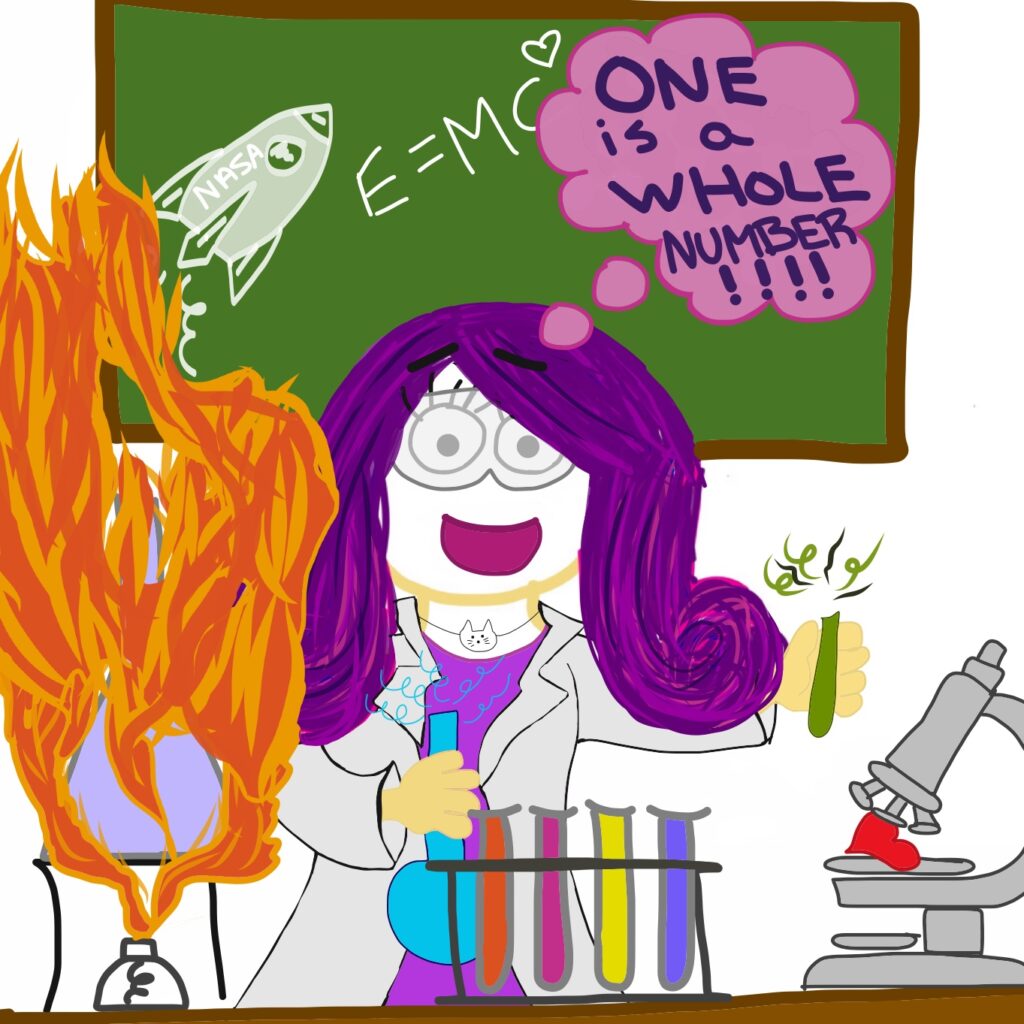One doesn’t have to be the loneliest number on Valentine’s Day—or any day.
Here’s why.
Recently, I was asked, as I often am, to perform a song in order to set up a speaker’s talk. This particular talk was about the importance of valuing “singleness” as a relationship status just as much as we tend to value marriage in our culture. The speaker emphasized the truth that neither singleness nor marriage is better or more beneficial than the other. Rather, they are different and equal.
I was asked to sing “One is the Loneliest Number,” and I found the lyrics to be spot-on about how we may feel at times regarding our relationship status or lack thereof.
The iconic line that probably comes to mind is,
“One is the loneliest number that you’ll ever do.”
But the song goes on to say,
“Two can be as bad as one.
It’s the loneliest number since the number one.”
You can hear my rendition here.
I won’t pretend to know what the songwriter had on his mind as he wrote these lyrics, but here are my thoughts: Being “one” or being alone does not at all equate to loneliness in my mind. And furthermore, we can be very lonely while in a relationship. We can even be lonely in a crowd of friends while standing arm in arm with our significant other. In my experience, togetherness or aloneness do not actually predict feelings of community or loneliness.
I thought about some of my married friends who are having a rather lonely existence along with singles who are feeling unfulfilled. I thought about my own fulfilling experience of being married for 18 years, and I considered the lives of several friends who are single and thriving.
I wondered if there might be a common denominator to our feeling of wholeness, as individuals, regardless of our relationship status. I am delighted to inform you that based on decades of scientific research . . .
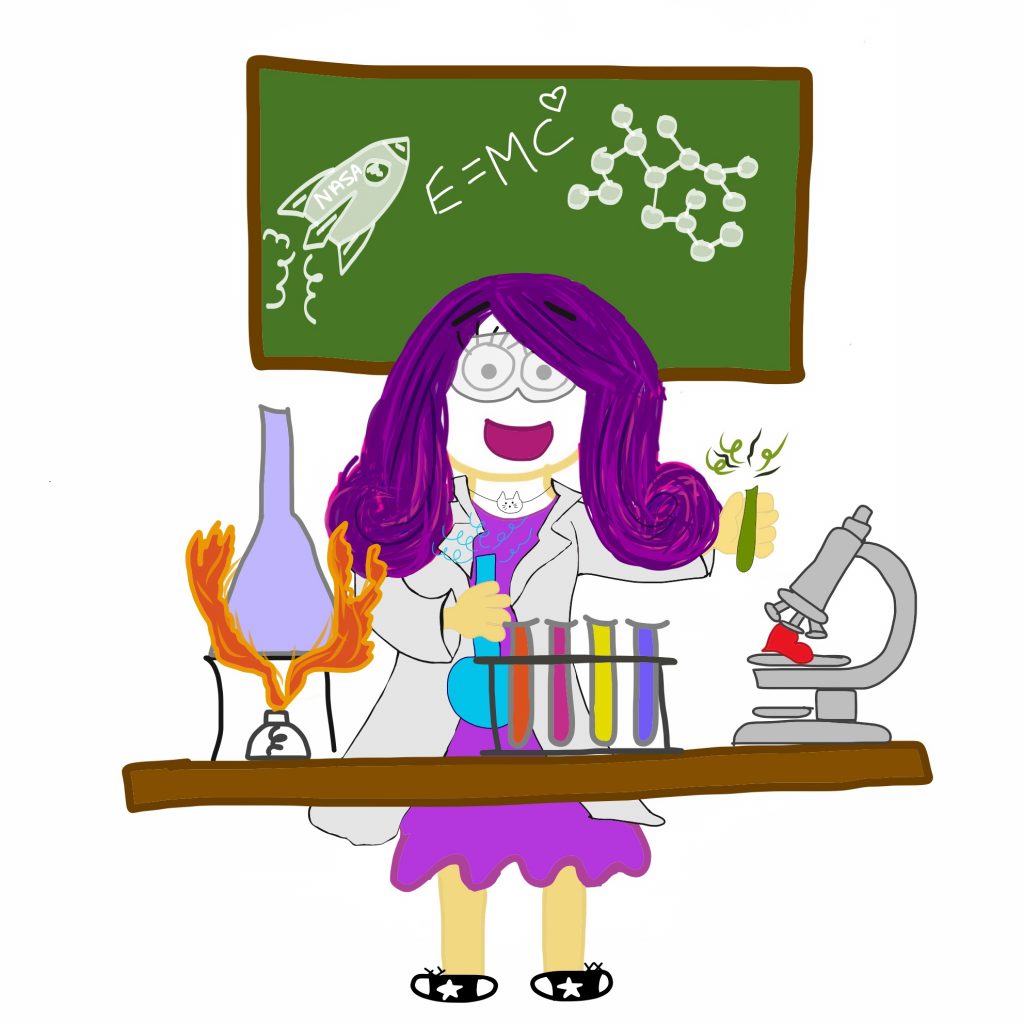
And thinking . . .
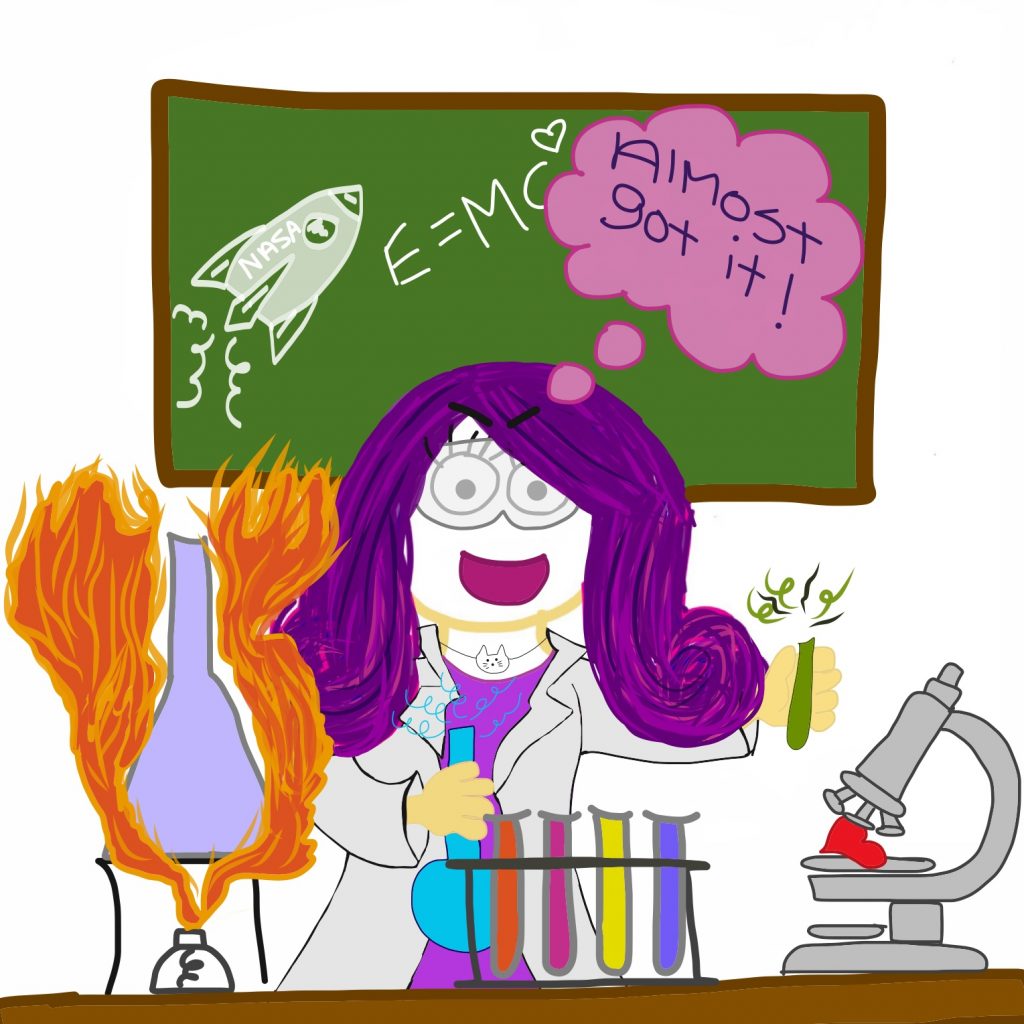
And MATH . . .
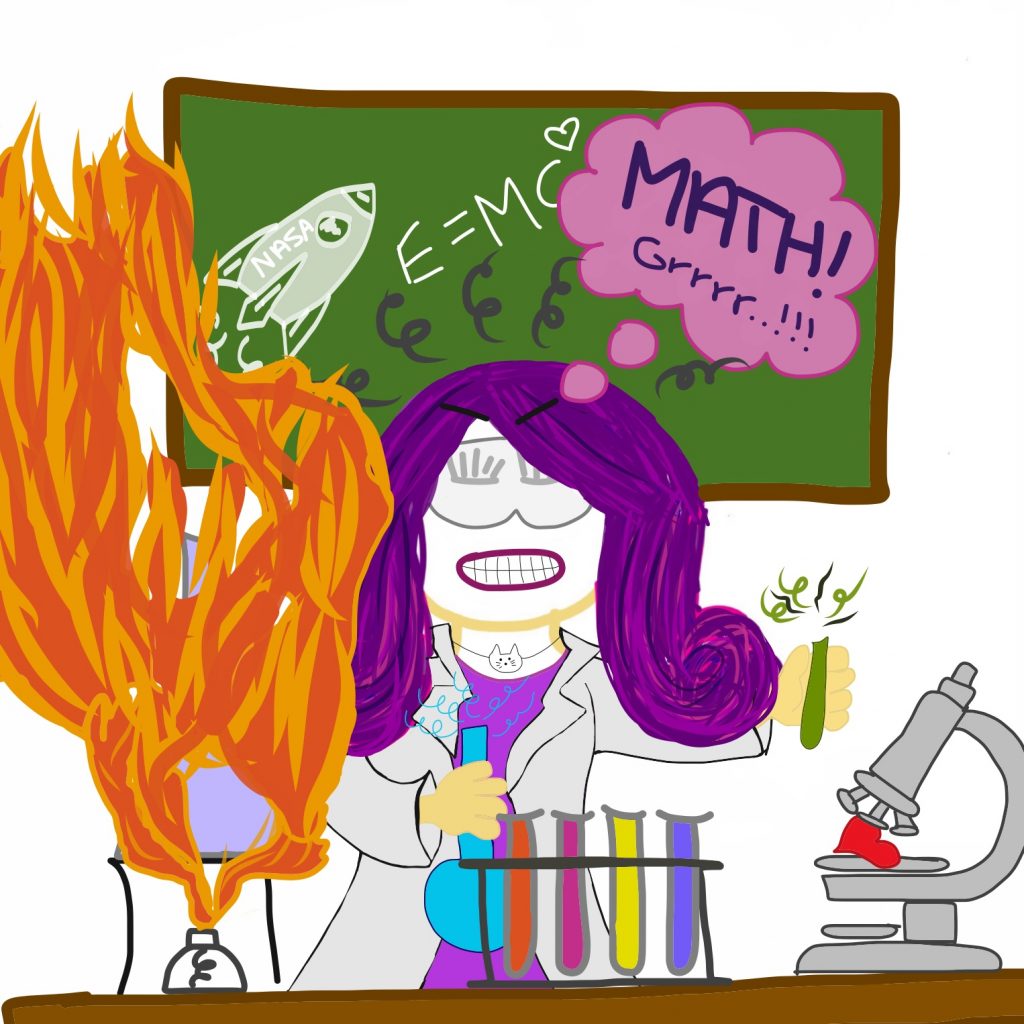
And then . . .
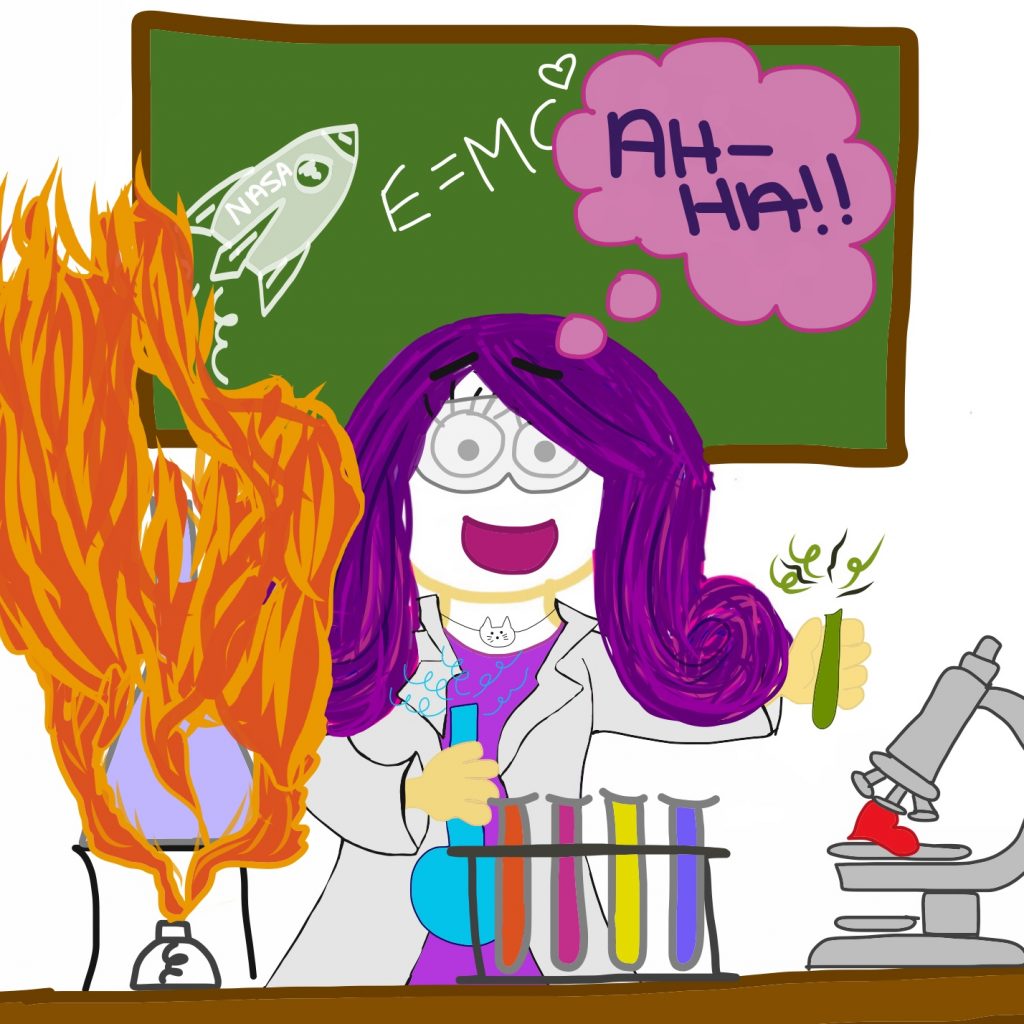
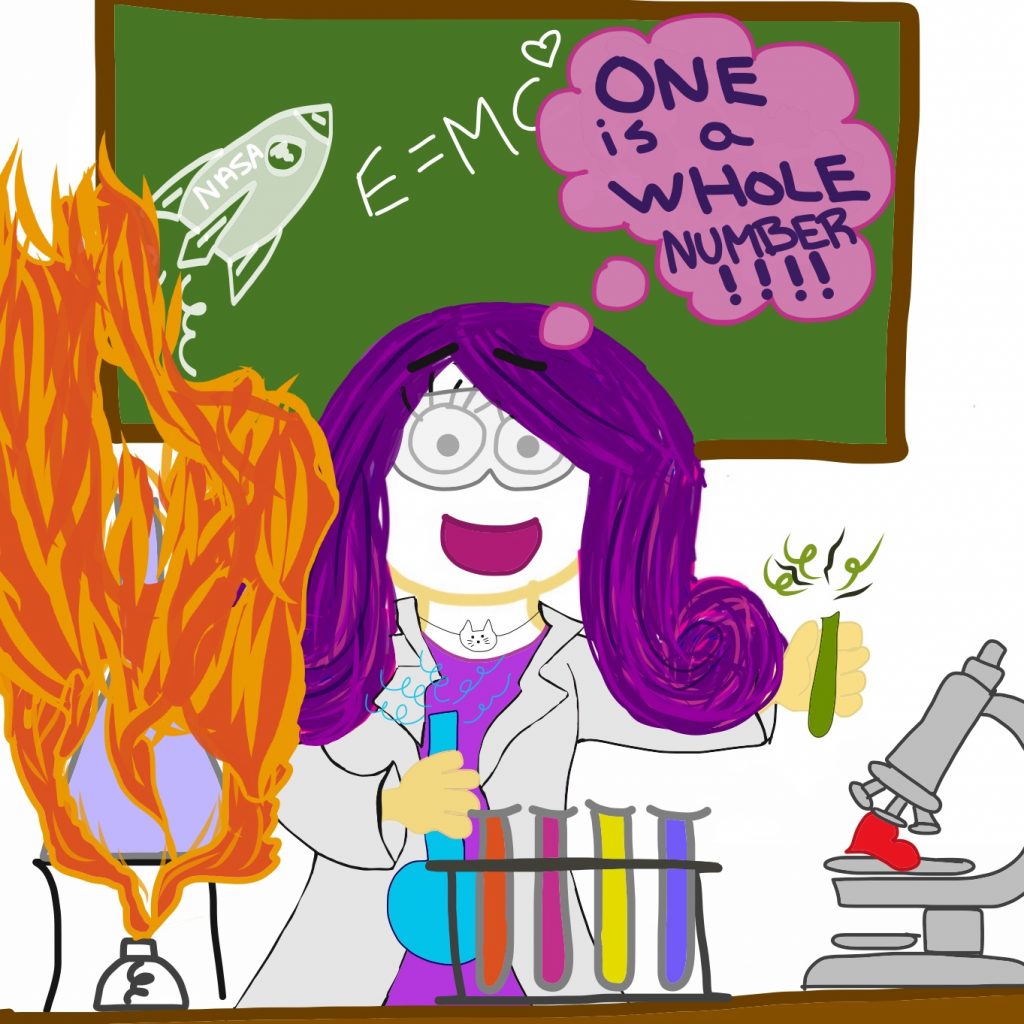
It’s true. Check out this very true statement I found on the internet.
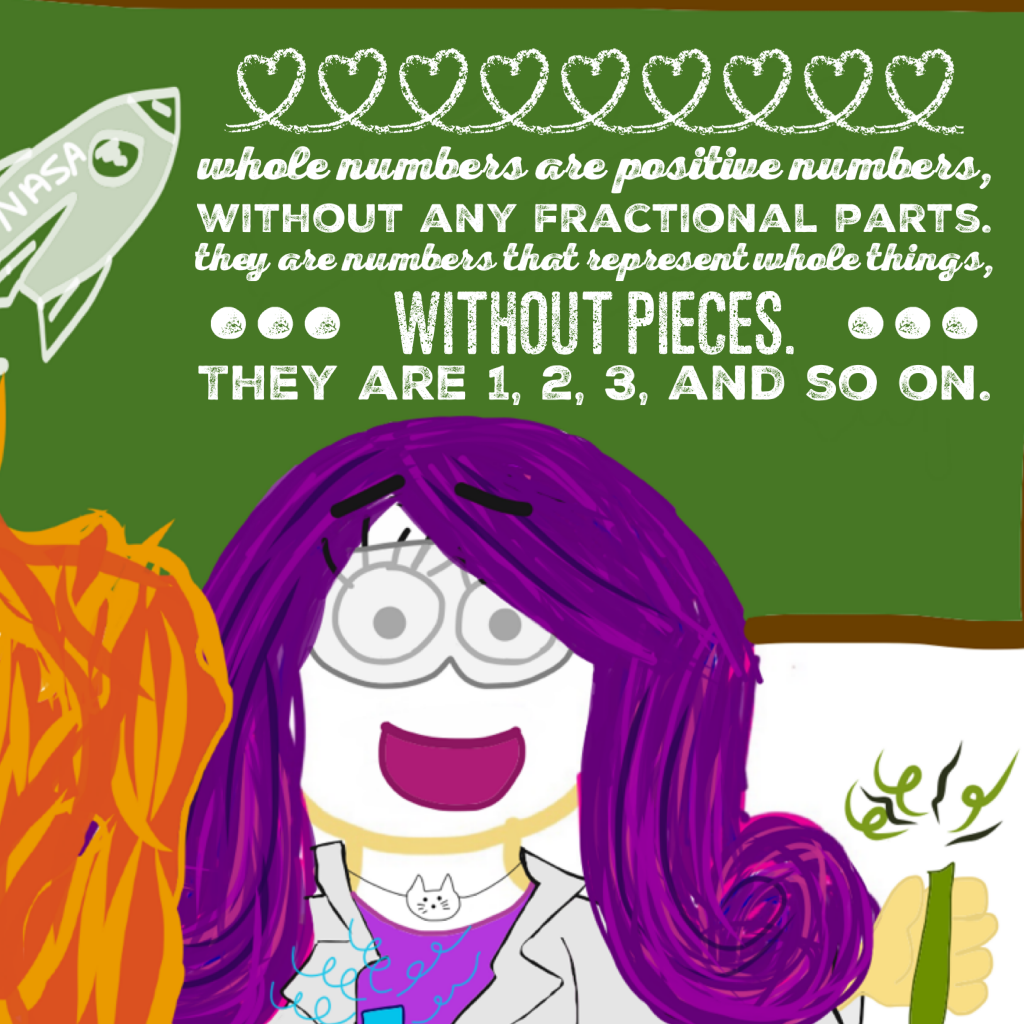
So, whether we are “one” or “two,” we are whole. We are not fractional parts or pieces. We, in and of ourselves, as individuals, are whole, positive things.
I believe that is the truth and the key to knowing how to thrive in any season of life or relational status. And I’m sure you believe it too—if for no other reason than I’ve wowed you with my irrefutable scientific methods.
But, past the beakers and spaceships, do we really know this deep down? Do we love and value ourselves as whole and complete, regardless of our relationship status? I think we absolutely have to. And here’s why:
Two people-halves don’t make a whole.
The truth is, two whole people make a whole relationship. Like this:
Heidi + Ryan = love
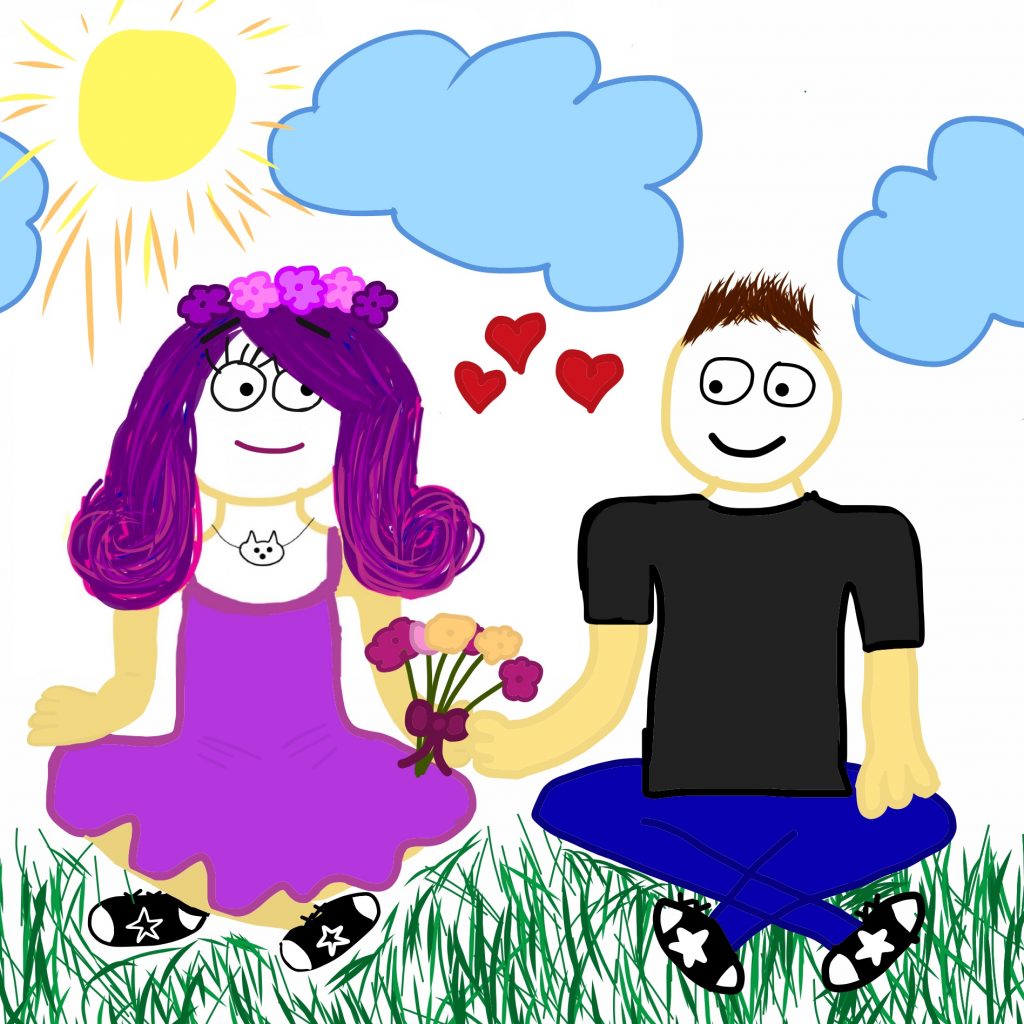
Okay, in the spirit of full disclosure . . .
Heidi + Ryan + too many animals = love
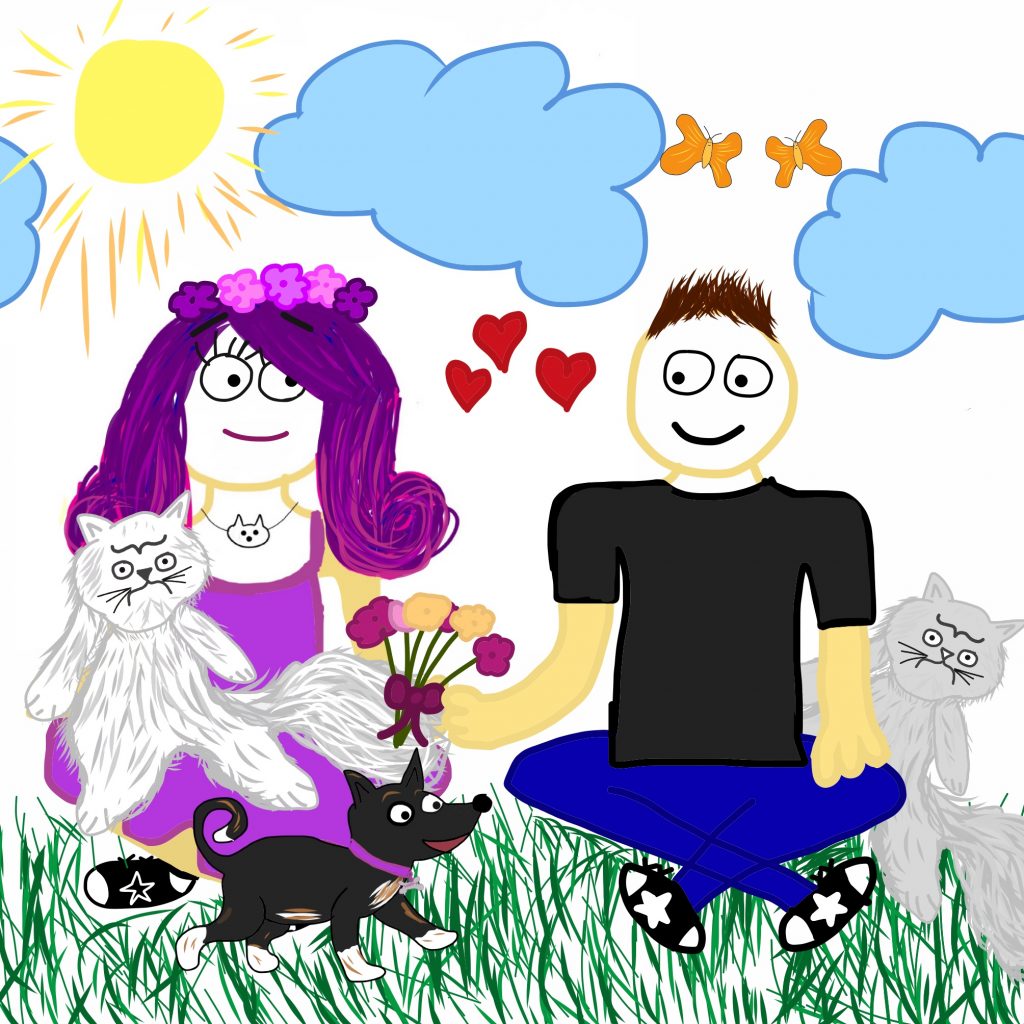
But look how weird this is:
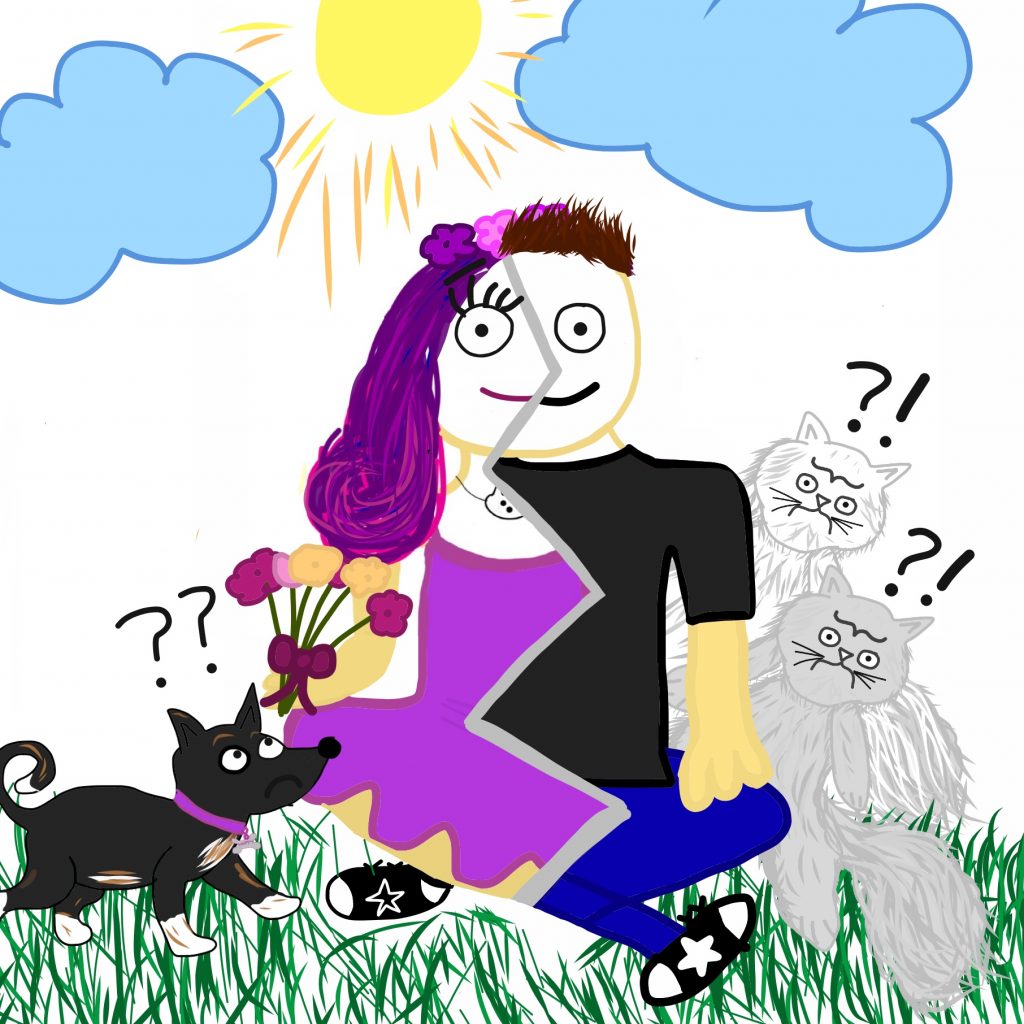
But isn’t that what we do sometimes? In relationships of all kinds, romantic and otherwise, it’s easy to buy into the Jerry Maguire-esque nonsense that “You complete me.” But two broken people who are not owning their completeness and wholeness as individuals cannot complete each other. That kind of expectation is doomed to end in resentment.
As someone in long-term recovery, I’ve learned that resentment is poisonous to my emotional and spiritual wellbeing; it creates stumbling blocks on my journey toward freedom.
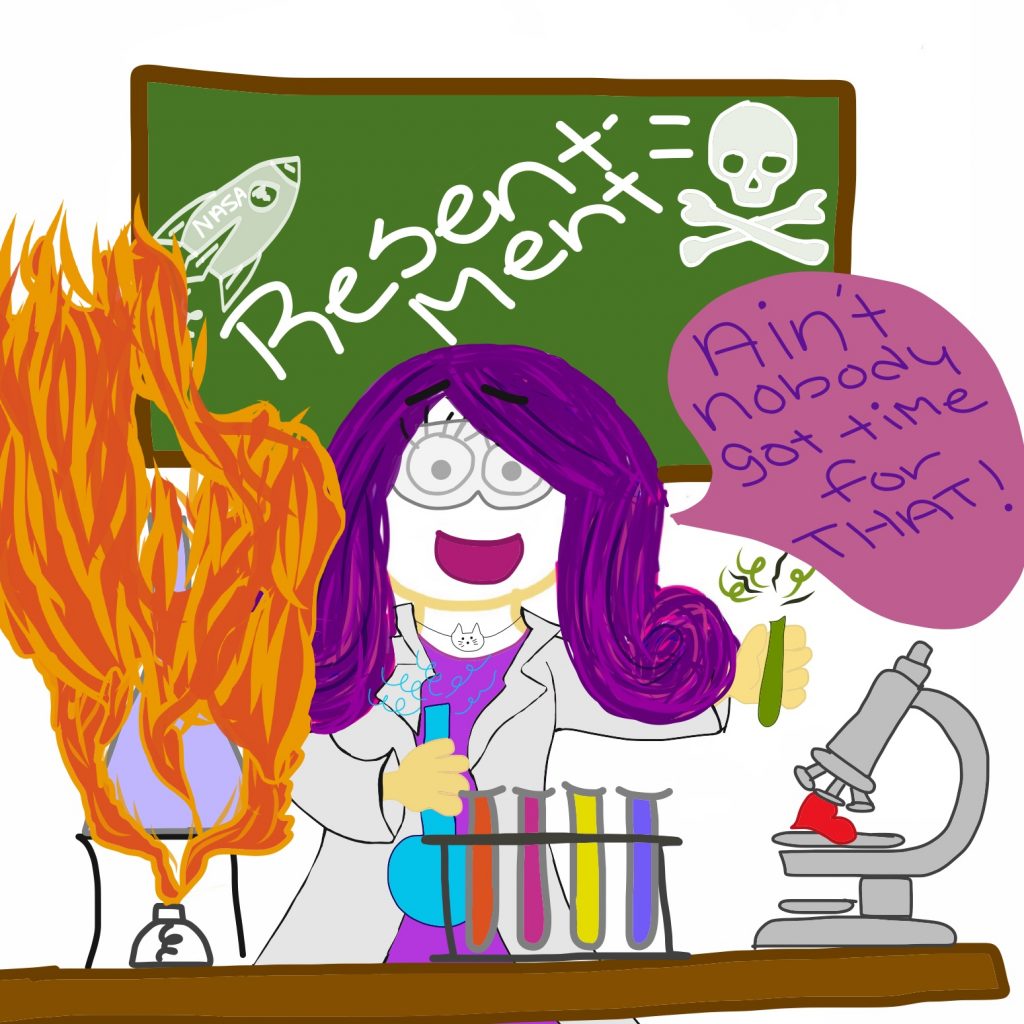
However, when we each embrace the responsibility and freedom to be whole and complete individuals, we set ourselves up for a life of contentment and joy. So, here are two practical ways to love and honor our whole self—whether our whole and complete self happens to be single or in a relationship.
We must give ourselves the gift of healing.
Let’s face it. We all get banged up by life and experiences. There have been times in my life that I have not felt whole because, in fact, I was broken and needed healing. I had never given myself the time and resources I needed to heal from past wounds. I had never unlearned the codependent ways of relating I learned in an alcoholic home.
This level of healing takes time and requires compassion for ourselves. Someone else’s love for us cannot substitute for the self-love and self-care required on this journey. My husband never could have healed my wounds, even though he loves me tremendously. My healing journey from codependency was exactly that—my healing journey. For me, that looked like taking time out from some of my regular activities and obligations in order to process and heal. I invested in a year of weekly counseling sessions. I set aside time for 12-step meetings, reading, journaling and other self-care practices. The healing journey is a gift we must give ourselves, along with all of the self-love and self-care that will help us to do it well.
We must embrace the desires of our true self.
Do you have a deep desire to travel? Do you want to go back to school? Do you dream of learning to paint or writing a book? Here’s what I’ve noticed about my friends, both single and committed, who are living life to the fullest: they own the desires of their heart and take responsibility for bringing them to fruition.
Right now, I’m thinking of Scott Harper, a single friend who would prefer to have a companion to do life with. However, that’s not his reality right now. His reality does include a standard that he owns as his truth. It sounds something like this:
“I could find someone. But I’m not looking for just someone. I’ve done a lot of my own work, emotionally and spiritually, and I’m looking for someone who has done their own work and healing. I love my job and have an amazing community of friends so I’m looking for someone who is already enjoying their life and has meaningful friendships. My life is so full and I’m looking for someone else whose life is full. Then, we can come together as two whole people and add to each other’s lives.”
Brilliant!
Scott loves photography and travel, and he’s not going to wait until Miss “I’m-a-whole-person-too” comes along to share it with him. He travels extensively, now, solo and sometimes with friends. He takes incredible photos and celebrates all of his adventures with his friends when he returns home.
Here are a few photos he’s taken recently:
Oregon

Paris

Frankfurt

London

Kenya
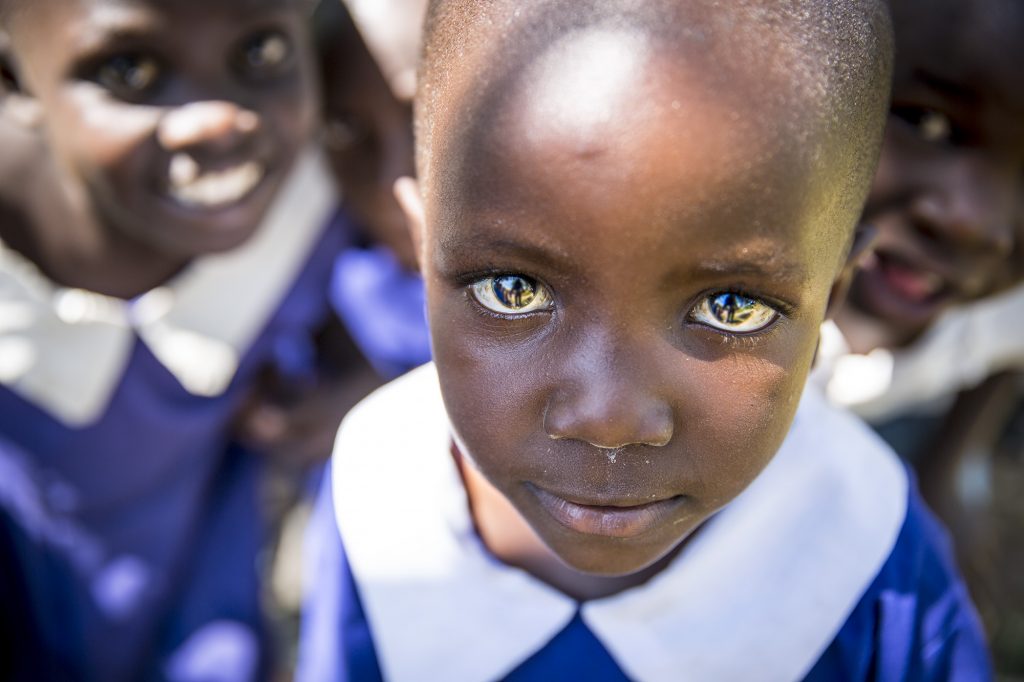

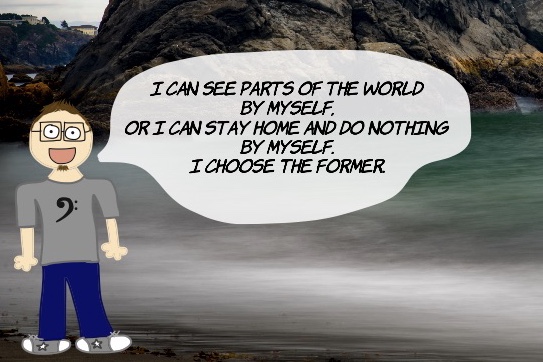
What a bummer it would be to miss this kind of beauty and the opportunities to use his creative gifts as a photographer by waiting for his ideal travel companion to come along. There’s no need for him to wait because he is whole, complete, and living in authentic ownership of what makes his heart happy.
On the flippity-flop, I’m now thinking of a married friend who has pursued many of her own interests which are not shared by her spouse. She is more of an extrovert, while he is an introvert. Rather than feeling resentful that he doesn’t want to go out, she’ll graciously let him be a homebody while she has dinner with a friend. If several couples are hanging out and her husband wants to recharge at home, she feels complete freedom to attend by herself and hang with the couples. She can do this with total confidence because she knows she is not one half of a couple. She is a whole and complete person who has plenty to add to any social situation. These are just a few of many ways she’s learned to embrace her desires and take ownership of their manifestation.
We can always enjoy the support and companionship of others, but when we own the desires of our heart and the freedom to make them happen, our world of experiences opens up exponentially. We don’t put our lives on hold, waiting for someone to share our experiences. We don’t resent those with whom we are in a relationship for not sharing our desires or getting what’s important to us. We don’t give our power away, thinking someone else can complete us or heal us.
We are whole and positive, without fractions or pieces, just as we are. We are free to pursue the healing we long for and to own our heart’s desires. We are empowered to take action and bring them to fruition. We are free to love ourselves, to love others without strings attached, and to thrive as the unique individuals we were created to be.
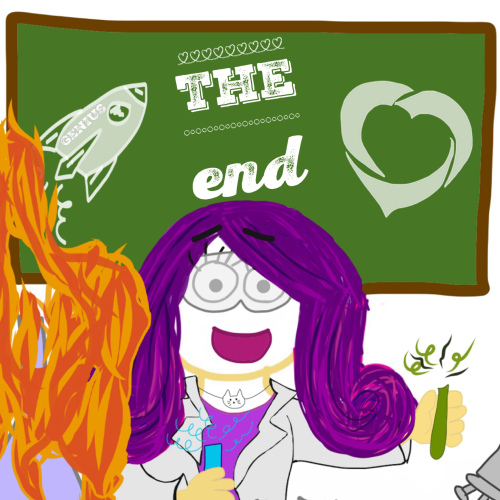
We’d love to hear your thoughts! How do you incorporate self-love and self-acceptance into your recovery?
For a cornucopia of self-care suggestions, check out Heidi’s previous article here. For a story about codependency recovery, click here.

